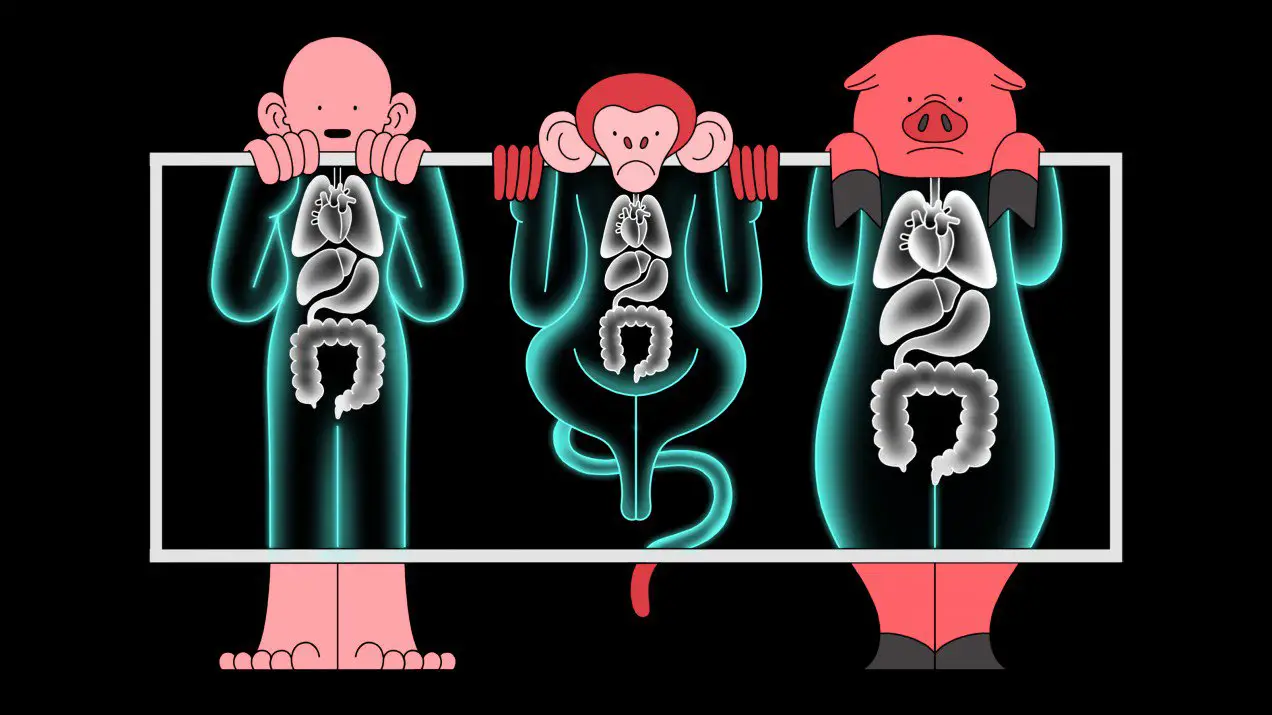A CRISPR Company Is Testing Pig Organs In Monkeys To See If They’re Safe For Us
Tags: News

Geneticist George Church, of Harvard University, in 2017 predicted that within a couple of years, pig organs can be transplanted into humans.
His startup eGenesis has made strides in biotechnology with news spreading of newer innovations. They have started testing pig organs for transplantation in monkeys which, if successful, would heavily relieve the stress on human organ shortages.
ALSO READ: For The First Time Ever A Kidney Was Delivered Via Drone For A Transplant
The testing is being conducted in the Massachusetts General Hospital, Boston. They haven’t tried it out on humans yet, but they are hopeful, as mentioned by the transplant surgery Chief, James Markmann.
With respect to testing it on animals, Markmann, who is also one of the advisers to eGenesis, says that this is the best they can do under the present circumstances.
Although they are suspiciously quiet on the monkeys used or the organs tested, Markmann and eGenesis claim that the pig organs are heavily engineered by the best scientists.
Doctors all over the globe have been heavily invested in genetic engineering, which involves transplanting pig organs into humans. While there have been strides made in recent years by German surgeons, like baboons living for at least 6 months after a pig’s heart was swapped with theirs, there has been nothing conclusive found. It must also be said that there are almost 100000 Americans waiting on the transplant list, so the need is now.
The pigs used for such experiments are usually engineered by Revivicor, a subsidiary company of United Therapeutics. These pigs are developed in such a way, so as to prevent human ejaculation of a foreign substance, blood clots, and other attacks of immunity.
Devin Eckhoff of the University of Alabama is desirous to test it out on humans. Considering all the advances made, such a desire can be understood.
Despite that, there have been no conclusive results and there are always debates going on about the modification of a pig. Church’s company eGenesis really came to the forefront when they started engineering and modifying pigs left, right and centre using CRISPR. The co-founder to the company, Luhan Yang in 2015 demonstrated how she could conduct 62 edits simultaneously to a pig’s DNA, one of which involved removing viruses that loiter around in a pig’s genome.
Yang’s company has now declared that they can conduct double-digit editing on a pig, which would significantly enhance their biology, and might actually help in transplantation. Lang claims that her pigs are the most scientifically advanced in the world.
Speaking at Carnegie Hall in 2017, Church had mentioned that he believed such xenotransplantations would be made possible in less than a year.
There was a big problem to that claim- most animals used for the procedure died pretty quickly under the circumstances, Lang and her team believe that this has something to do with the basic physiognomy of the animals used and are checking into it.
But all these investigations require a lot of pigs. While the American counterpart of the company has created 100 pigs, and so has the Chinese biotech firm Qihan Biotech.
ALSO READ: Meet Josiah Zayner, The Biohacker Who Just Edited His Own DNA
There is an ongoing debate as to how many edits should be made per animal to ensure that they are perfect for engineering and transplantation. Muhammad Moinuddin of the University of Maryland believes that instead of editing out every single virus from the host animal, they should hit a maximum of 8 to 9 edits per animal, and use it for multiple organs.
Else, the rest would go to waste.
Truth Theory is on Instagram, make sure you follow us for all the cool updates, click here
Markmann believes that if a pig organ can last for 5 months to a year in animals, then science could really make it possible for it to last for a lifetime in humans. To put it succinctly, he is hopeful that this is possible.
IMAGE CREDIT: Nan Lee
Leave Comment: